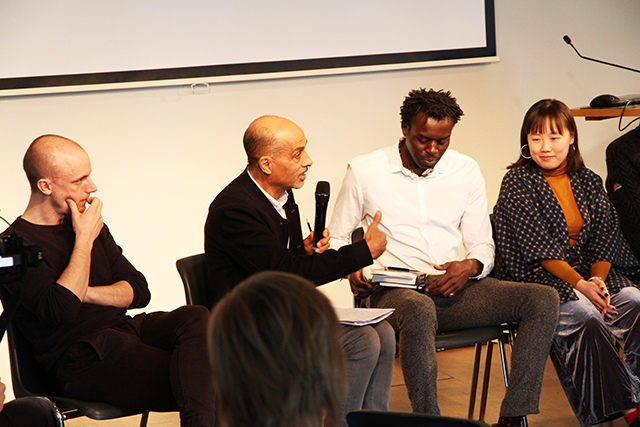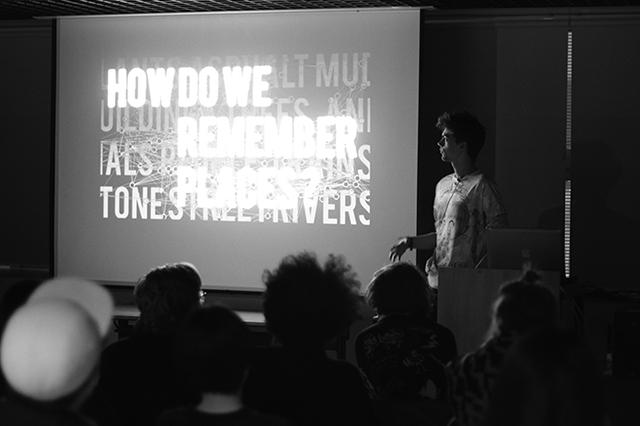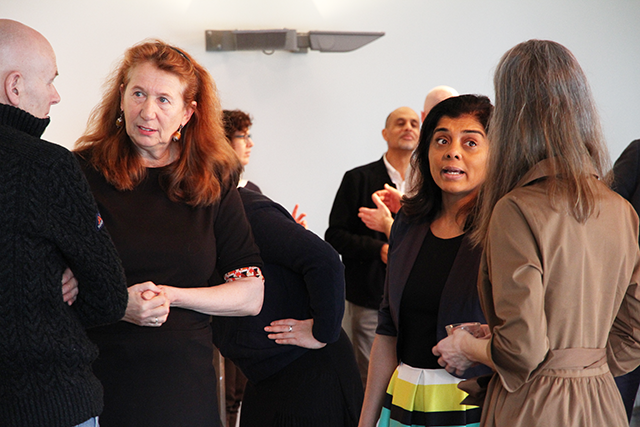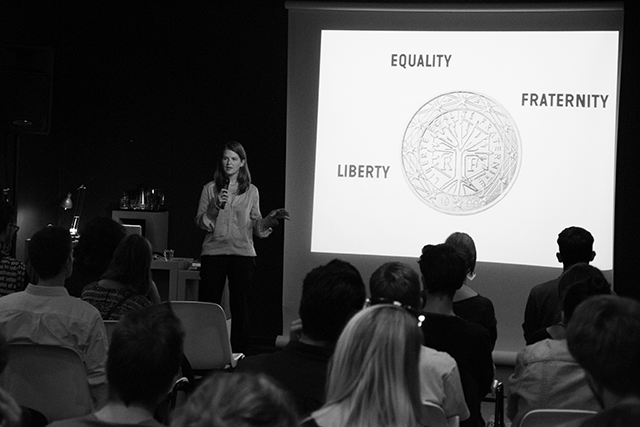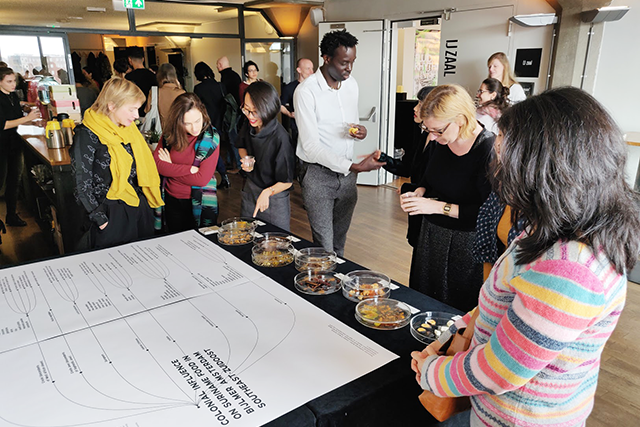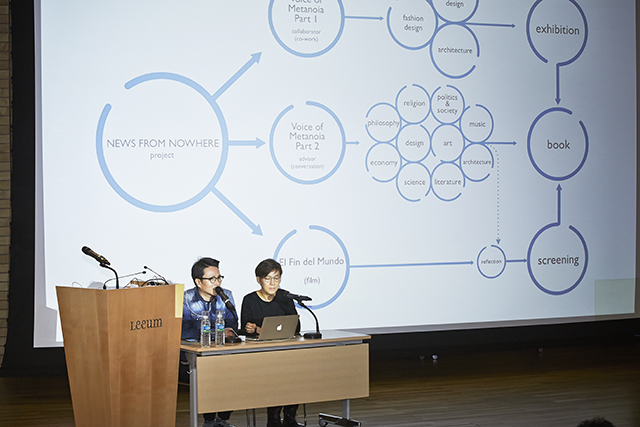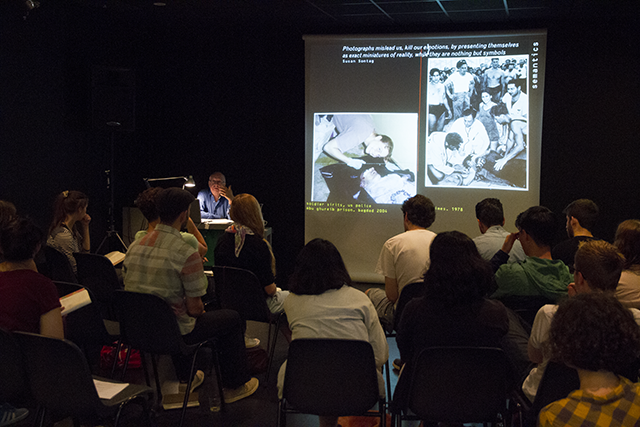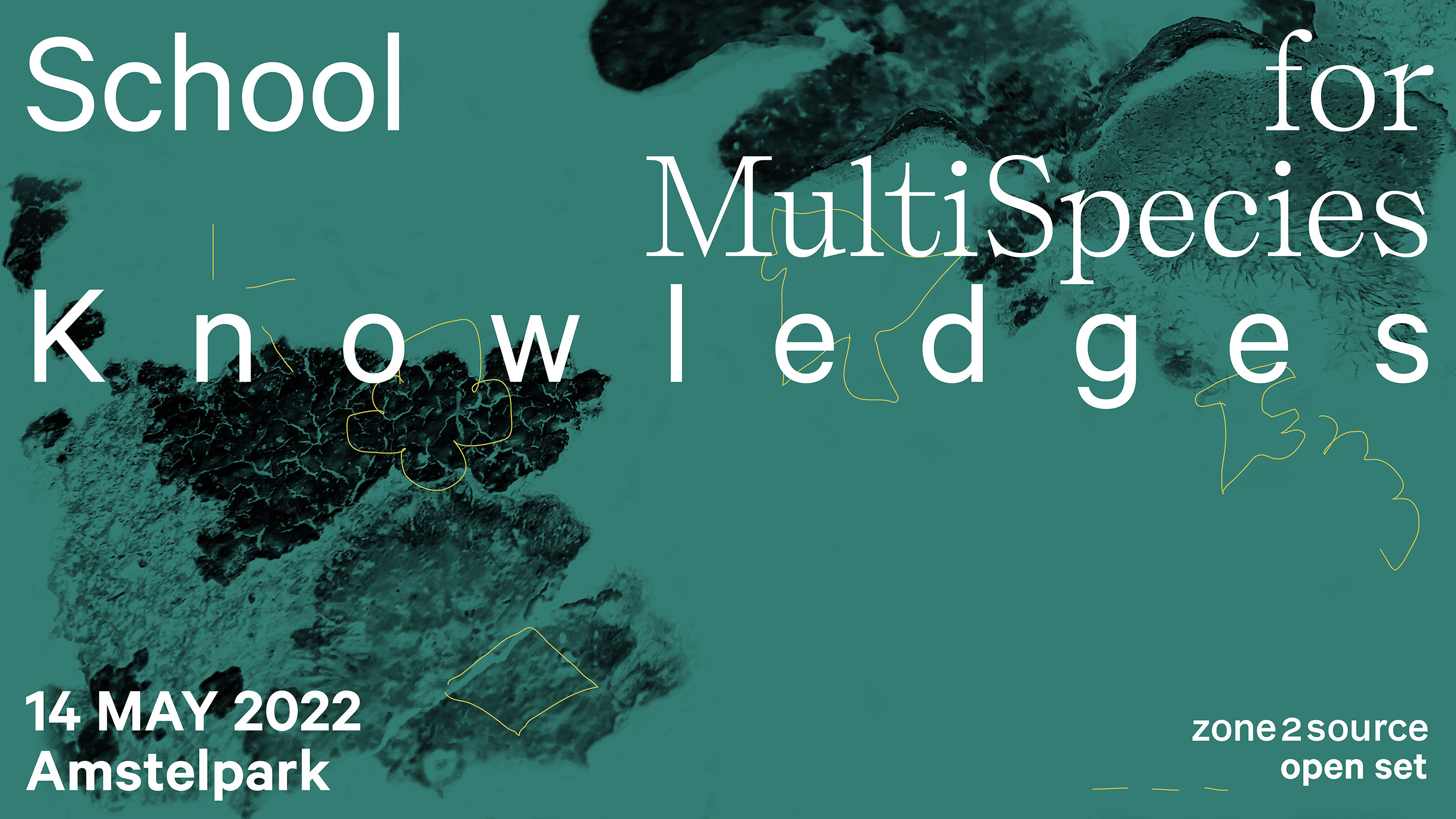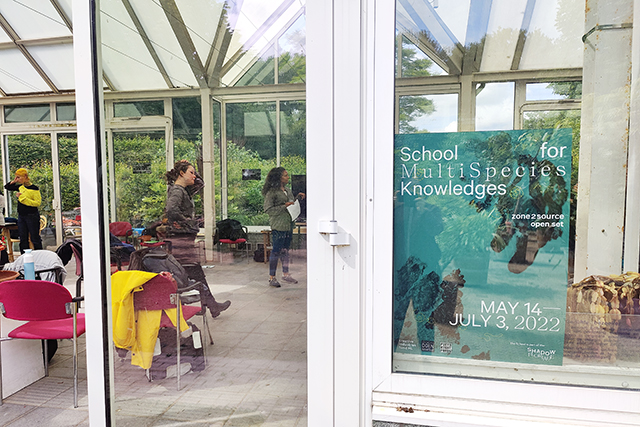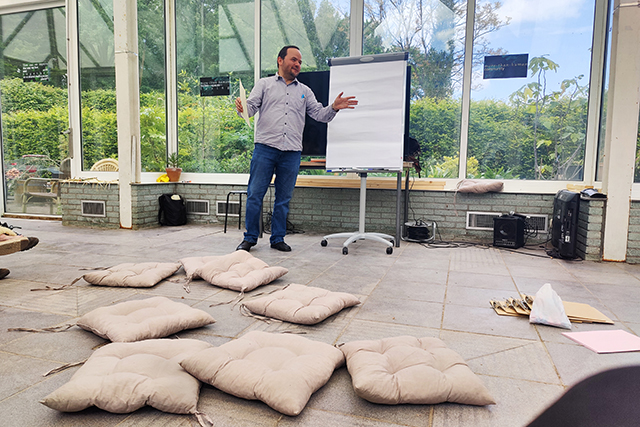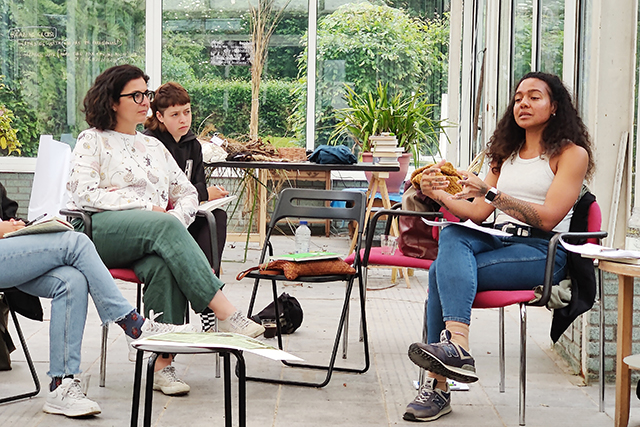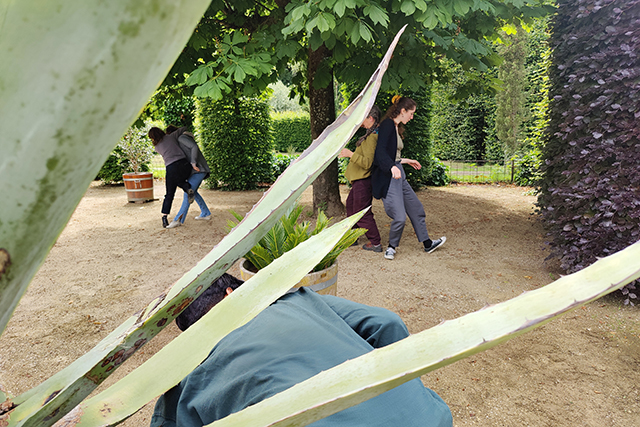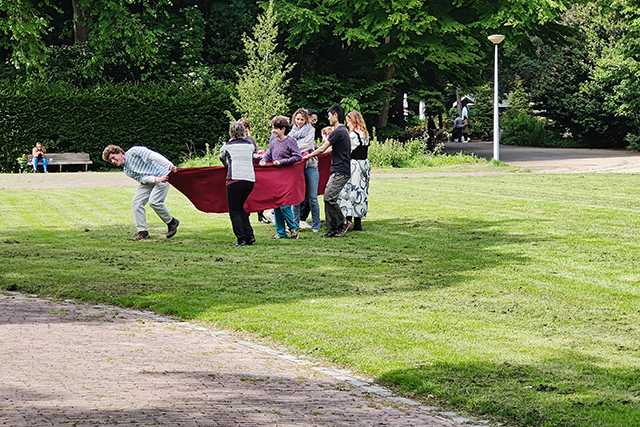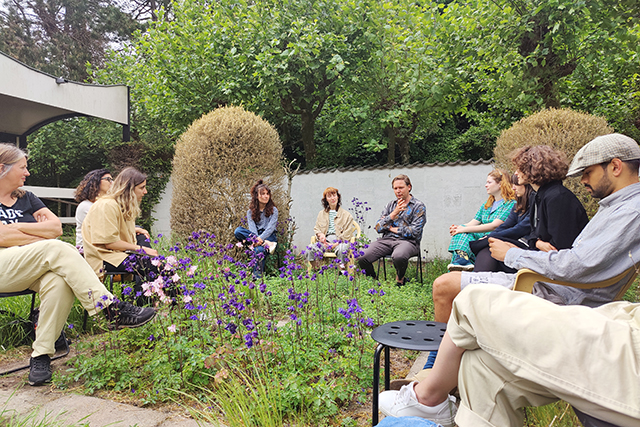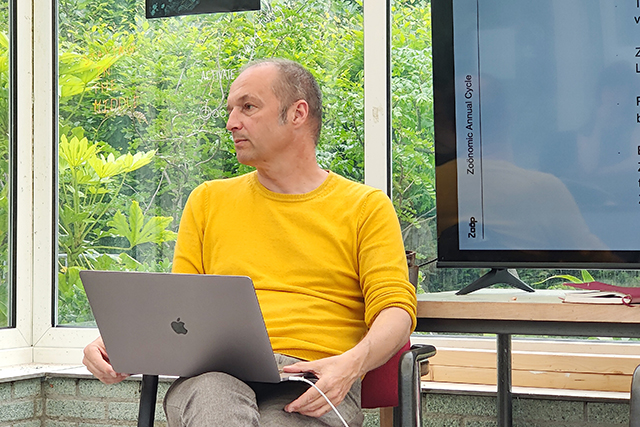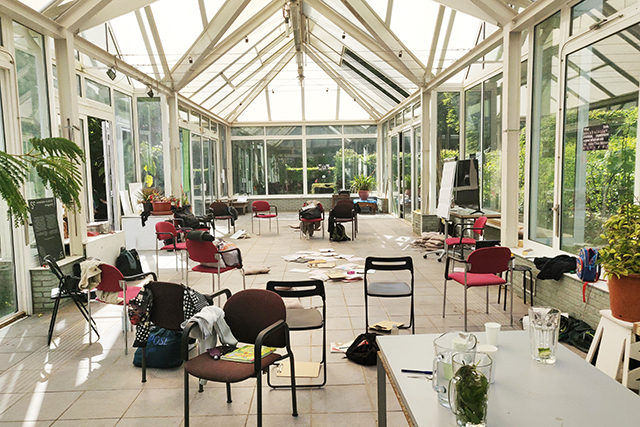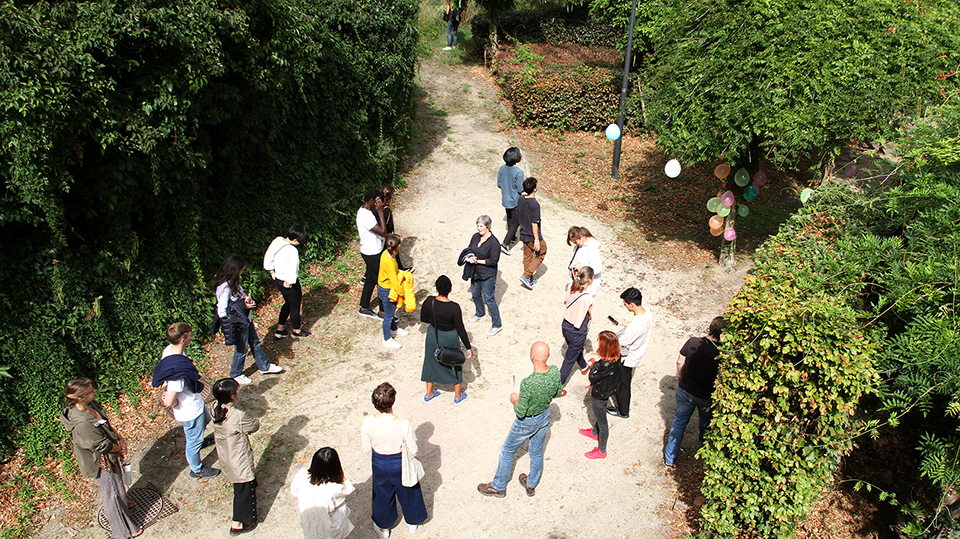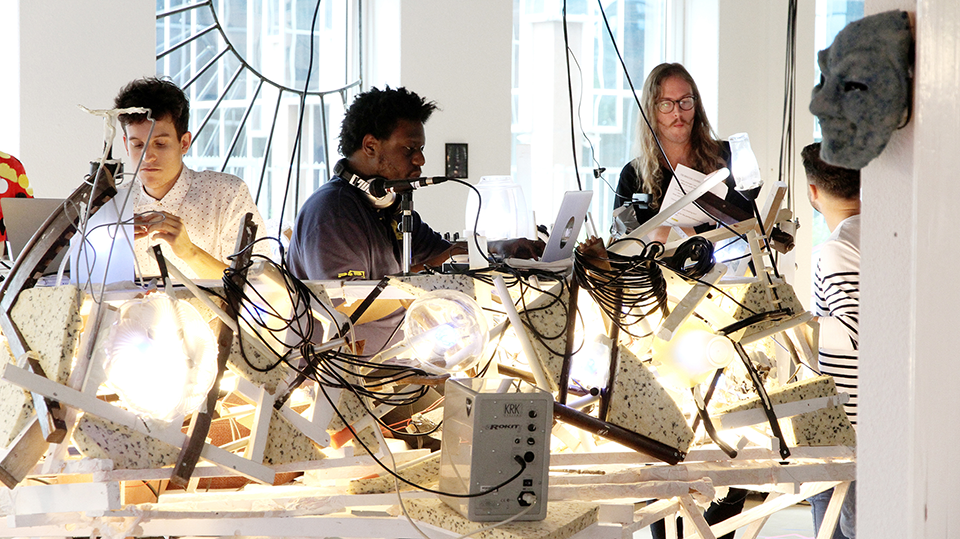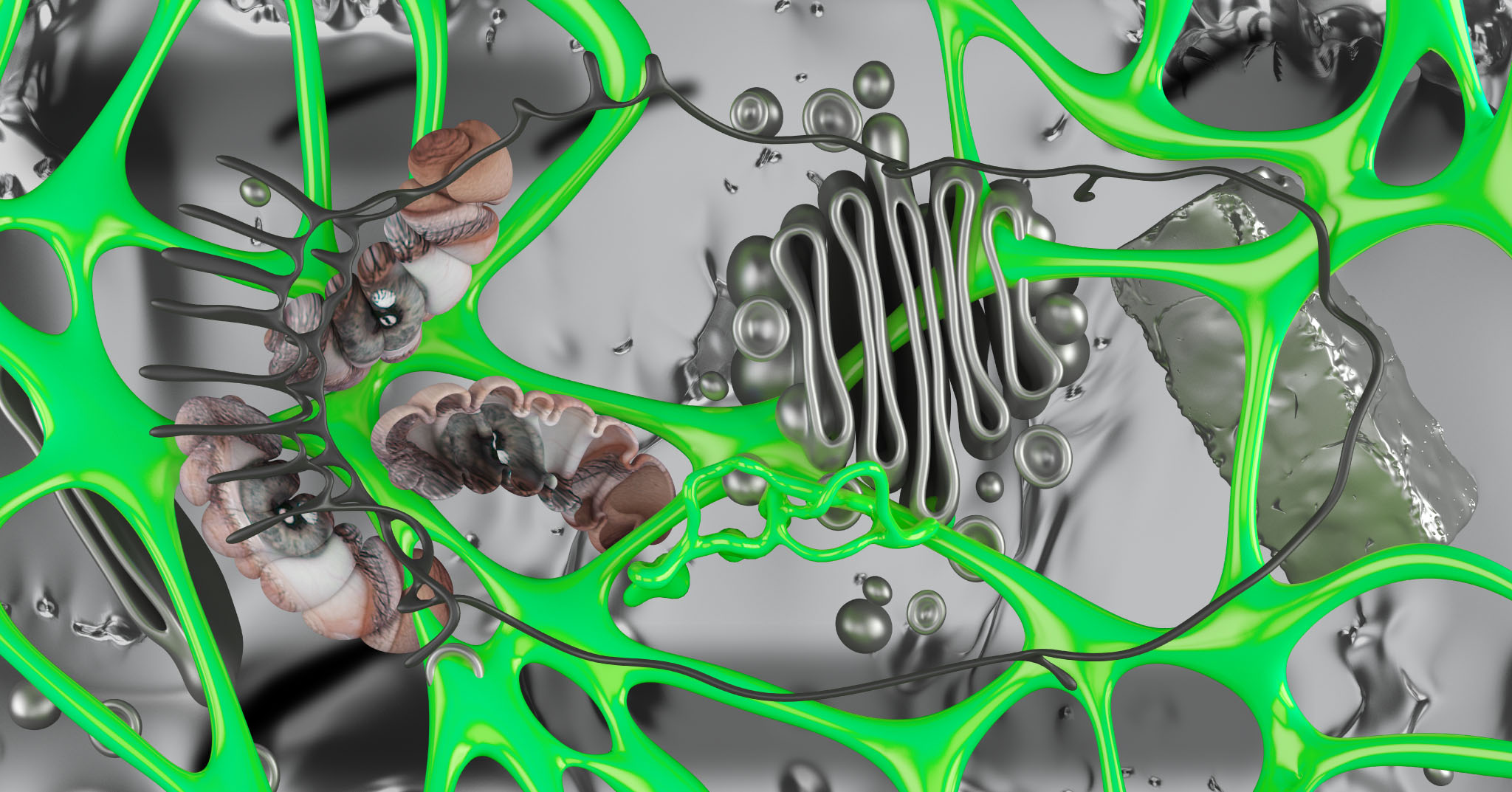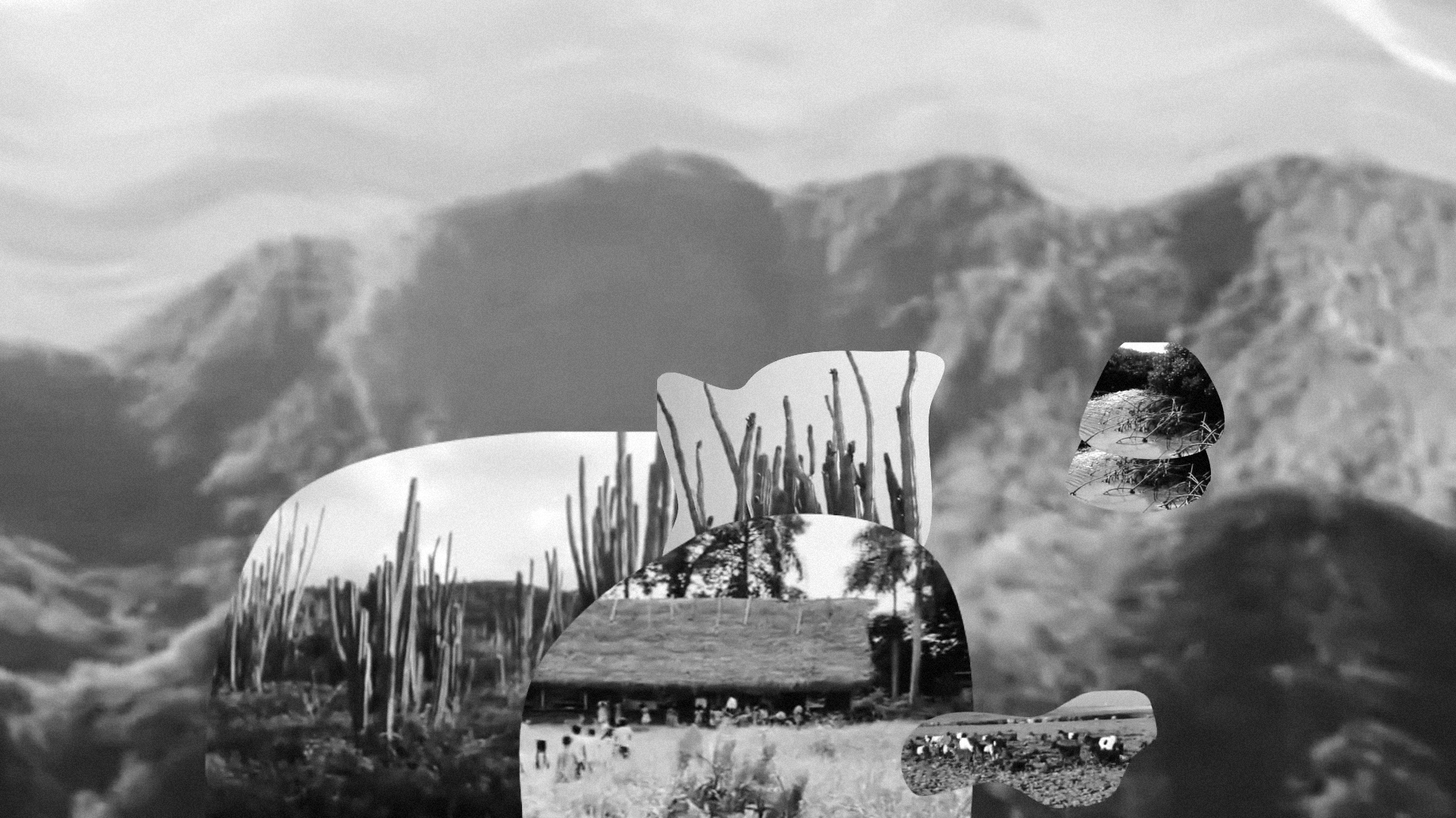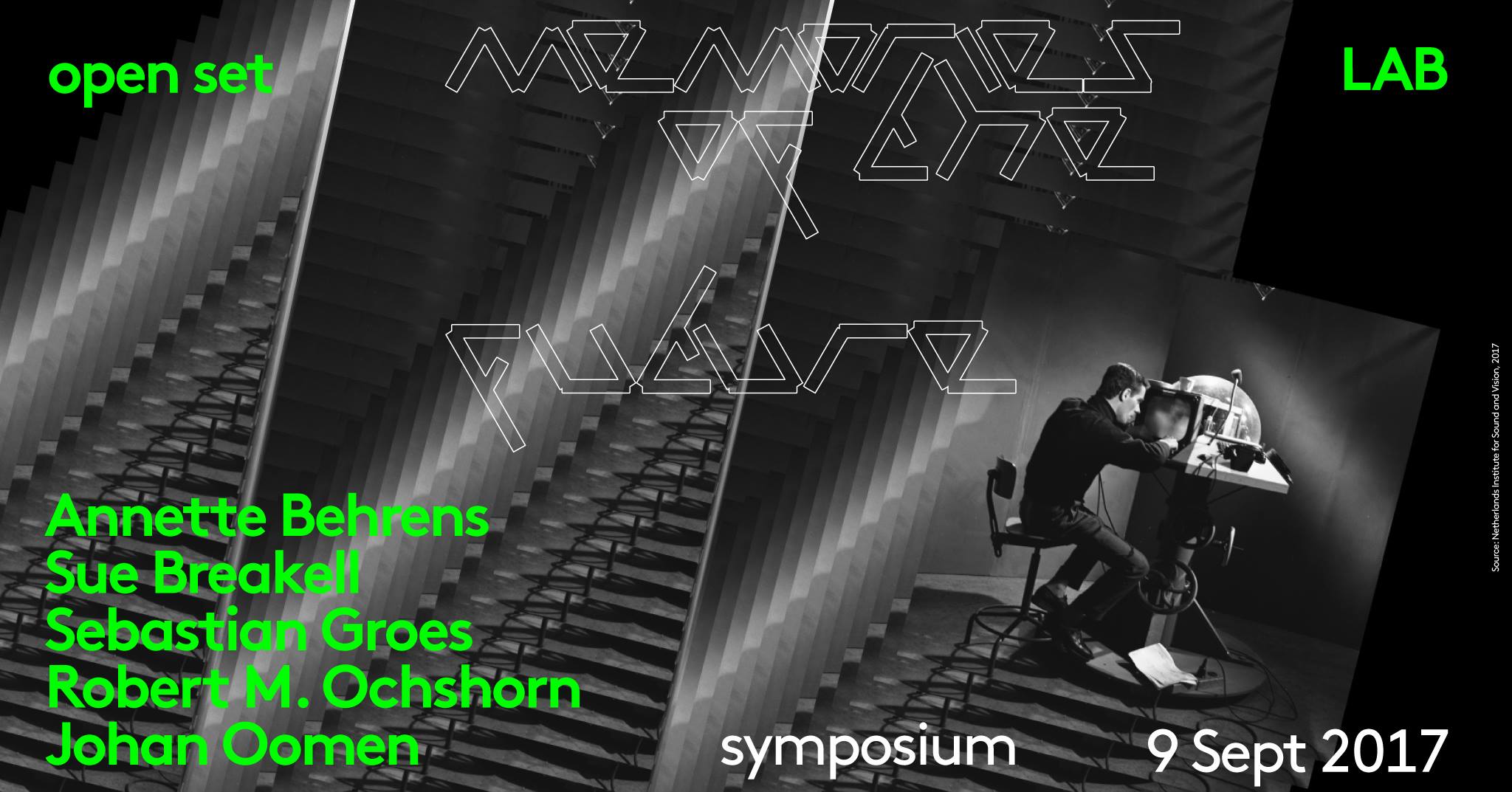Public engagement is essential to Open Set’s mission and is integrated into all curriculum
.
expanding dialogues is at the heart of what we do.
In symposia, conferences, and lectures, we present the results of our research and invite wider audiences into our intellectual boxing ring.
School for MultiSpecies Knowledges
Exploring the Results
July 2 & 3, 2022 | 14.00-18.00
Orangerie, Amstelpark
The School for MultiSpecies Knowledges 2022 took place from May 14 until July 3, 2022. A group of participants engaged in weekly meetings and exchanges with guests and developed a public programme in which they took people along in retuning ourselves to other life forms, taking the Orangerie and the outdoors of the Amstelpark as our laboratorium. On July 2 & 3, the participants presented the results of their explorations on multi-species tactics.
Programme Saturday, July 2
14.00-18.00 | Exhibition Orangerie and Outdoor Projects
14.00 | Learning to Enter Amstelpark
experience by Anna Fink and Samar Khan
15.00 | Herbarium II: Dandelion
performance by Toni Kritzer
16.00 | Duck and Goose Politics
reading group by Angela Serino and Ege Kökel (registration via email projects@zone2source.net)
17.00 | Cyanotype
workshop by Gill Baldwin
Programme Sunday, July 3
14.00-18.00 | Exhibition Orangerie and Outdoor Projects
14.00-18.00 | Moistened in Syrupy Sap
live demonstrations by Marie Ilse Bourlanges with Chloé Rozy Sapelkine
14.00 | Gestures of Maintenance: Amstelpark Network of Interdependence
workshop by Willie Vogel (Studio Inscape)
15.00 | Foraging Rituals
experience by Angela Jerardi, Inês Queirós, Katrijn Westland
Herbarium IV: The Nettle
performance by Toni Kritzer
16.00 | Escolanza
reading group by Angela Serino
17.00 | Closing conversation with Laura Cull Ó Maoilearca
Lecturer and head of DAS Graduate School
Exhibition at the Orangerie
Fungi Narratives by Roots Collective
Duck Encounters by Ege Kökel
Edible Timeline of a Future Food Forest by The Centre of Genomic Gastronomy
Moistened in Syrupy Sap by Marie Ilse Bourlanges in collaboration with Chloé Rozy Sapelkine
Sparing The Wind by Reon Cordova
Research tables by Angela Serino, Toni Kritzer, Inês Queirós, Katrijn Westland, Angela Jerardi.
Outdoor projects
Pigeon Pagoda by RavenZanstra at Ben Ali Libi bridge (Bridge #838 near petting zoo)Meet the Minotaur, audio walk by Nadine Botha at the labyrinth (left of main entrance park)
Open Studio series
Location: Orangerie, Amstelpark
The The public series of the School for MultiSpecies Knowledges 2022 invited everyone interested to join experimentations of the programme and conversations with its cohort of the School’s participants. The programme took place in the Orangerie in the Amstelpark which was used by Zone2Source as an open Park Studio and now the headquarters of the School, but focused on outdoor explorations.
#3 Session, 20 June 2022, 11.00–17.00
Programme
11:00-13:00 Heather Barnett
Heather shared some recent multispecies encounters from the studio, the lab and the field and invited us to shift perspectives in how we perceive and interact with our surroundings and the many forms of life sharing our habitat.
Heather Barnett is an artist, researcher and educator working with living systems and imaging technologies. Her work explores how we observe, influence and understand multi-species ecosystems, with recent work centred around nonhuman intelligence, collective behaviour and experimental systems for co-enquiry. Heather is Pathway Leader on the MA Art and Science and Convenor of the Art & Living Systems Lab at Central Saint Martins (University of the Arts London), a Visiting Associate Professor at Tokyo Institute of Technology, and founding member of The Slime Mould Collective.
13:00-14:00 lunch
14:00-16:30 Budhaditya Chattopadhyay
'Budhaditya held a session on his research on mindful, subjective, and collaborative aspects of listening practices. In this case about tuning into sounds in the park through listening end recording exercises.
Budhaditya Chattopadhyay is an Indian-born media artist, researcher, and writer. He holds a PhD in Sound Studies and Artistic Research from the Academy of Creative and Performing Arts of Leiden University, the Netherlands, and an MA in New Media from Aarhus University, Denmark. Working across diverse media, such as sound, text, and moving image, and incorporating various technologies such as sensors, AI, and Machine Learning, Chattopadhyay produces large-scale installations and live performance addressing urgent issues such as the climate crisis, human intervention in the environment and ecology, migration, race, and decoloniality.
16.30-17.00 Closure
#2 Session, 30 May 2022, 11.00–17.00
Programme
11:00-13:00 Neal White: The Eco-Artist/Activist Cookbook. Recipes from the Multispecies School
Drawing on the Anarchist Cookbook (now illegal to possess in many countries), and inverting its logic, this event addressed corporate anarchism, eco-fascism and the slow grind of climate change politics in which our environmental future is being shaped by malign forces. In this session, the artist Neal White outlined his own key concerns, and situate artistic research methods in order to explore coevolutionary knowledge tactics. Together the aim was to explore through activity in the park and local habitats, how members of the School could contribute to a future publication with ‘recipes’ for action, as tactical approaches in which other species can become co-authors of change. The challenge is multi-sensory, it is not about theory, or even politics, but about placing ourselves out of the studio and into the field as a site for the construction of shared knowledge, even if that knowledge is art.
Neal White is an artist and a Professor of Art/Science at CREAM – which was very recently acknowledge as the leading arts research centre in the UK. He leads the has co-curated the exhibition Perfect Nature at Amstelpark and has led many research projects, collaborations and exhibited work Internationally.
For more information: nealwhite.org, officeofexperiments.net, cream.ac.uk/the-deep-field-project/
13:00-14:00 lunch
14:00-16:30 Victoria McKenzie: Multispecies Choreographies
'Multispecies Choreographies’ took us on a journey of attunment. Through 3 scores of dance, choreography and walking, we navigated the world of fungi, cattle and microbes—allowing us to learn from the extended communities of the landscape. We were asked to engage with our more-than-human counterparts; radically observe; listen while doing and allow our bodies to enter the system of deep relationships we call ecology. The practice asks us who are the ‘beings’ in 'multi-species being', and what do they have to teach us about connection, relationality, political action and communication.
Victoria McKenzie is an Eco-warrior, academic-activist, dancer, researcher and writer. She currently teaches a course at the Sandberg Instituut entitled ‘The Ecological Self’ which looks at the intersections between soil ecologies, ecofeminism, and post-colonial thought. In 2019 she travelled to the Ecuadorian Amazon, utilising her background in permaculture and mycology to remediate toxic soils on indigenous lands. Victoria’s ultimate aim is to demonstrate the entangled life of climate whilst developing new methods for living together on this Earth.
16.30-17.00 Closure exercise (lead by Irina Shapiro)
#1 Session, 14 May 2022, 11.00–17.30
Programme
11:00 Welcome by Irina Shapiro (Open Set) and Alice Smits (Zone2Source)
11:30-13:00 Mark Shillitoe, Entangled Gestures of Being-With
In a relational field of participatory gestures, participants tuned into the space, the others and each other through a series of playful grounding movements and positionings.
go outside but not completely
sense the social rhythms of push and pull
doubt time
Mark Shillitoe currently divides his time between that of educational researcher and a classroom teaching practice at International School Delft. As a practice-based researcher he employs a series of arts-based pedagogical tactics to explore the relationship between thinking and making. His work navigates sense-laden, relational modalities and is guided by walking practices, generative mapping methodologies and a participatory practice of community gardening.
13:00-14:00 lunch
14:00-15:30 Rolando Vázquez, Decoloniality Towards Earth
A cartography workshop and conversation on the intersection between Earth and social justice: “Can we live an ethical life in a world in which our well-being and sense of self is implicated on the suffering of human and non-human others and the extraction of Earth?”
Rolando Vázquez is a teacher and decolonial thinker. He is regularly invited to deliver keynotes on decoloniality at academic and cultural institutions. Vázquez is currently Associate Professor of Sociology and Cluster Chair at the University College Utrecht. Since 2010, he co-directs with Walter Mignolo the annual Maria Lugones Decolonial Summer School , now hosted by the Van Abbemuseum. In 2016, under the direction of Gloria Wekker , he co-authored the report “Let’s do Diversity” of the University of Amsterdam Diversity Commission. He is an Advisor at the Jan van Eyck Academy for 2021/2022.
15.30-15.45 Walking break (lead by Mark Shillitoe)
15.45-17.00 Introduction of the plans of School participants
17.00-17.30 Closure exercise (lead by Irina Shapiro)
Credits
The programme was organized in collaboration with Zone2Source, Amsterdam. It was made possible through the support of Creative Industries Fund NL, Stichting DOEN and Pictoright Fonds.
On the Practice of Tuning-in
8 March 2019, 10.00–17.00
Location: Pakhuis de Zwijger, Amsterdam
This symposium brought to a close three Open Set research programmes on rhythms in Amsterdam Zuidoost: the summer school, the 5-month-long Lab Practicing Rhythm and the series of seminars Rhythmanalysis in Context.
During these programmes, local and international artists, designers and scientists delved into the contemporary and historical setting of Amsterdam Zuidoost through rhythmanalysis. What happens when one tunes—when one listens to, understands, synchronizes with or refuses—the rhythms of others? Through multidisciplinary collaborations, Open Set explored sensitivities involved in the process of tuning in different contexts: as individuals or communities; in urban spaces or with urban materials, education and culture.
The symposium presented rhythm-based explorations and interventions developed during the programmes. Together with international speakers, we reflected on how the recognition of different rhythms plays an essential role in understanding the complexities of, and in engaging with, the urban fabric.
The Open Set professionalisation programmes in Amsterdam Zuidoost aimed to enrich the methodologies of participants with innovative transdisciplinary methods. Through different formats, these programmes offered a safe territory for promising artists and designers to strengthen their practices, meet peers from all over the world, and extend their professional networks.
Line-up
- Tanja Jadnanansing — Chair of the Board of the Burough of Amsterdam Zuidoost
- Suzy Blok — choreographer, educator, artistic and general director at Dansmakers Amsterdam
- Prof. Julian Henriques — Goldsmiths, University of London
- Pinar Sefkatli — architect, PhD researcher, University of Amsterdam: 'Designing with Rhythms'
- Peter Vial — visual artist
- Anna Costantino — Philosophy of Education & Language Education, University of Greenwich
- Petra Hegenbart —multi-disciplinary practitioner
- Heather Griffin — designer
- Xiaoji Song —researcher in social science, design, digital technology
- Albert Kuhn — Non-fiction director, producer
- Kozhukhovskaya Natalia — visual artist
- Noemi Niederhauser —artist, designer, curator, the co-founder of the artist-run space A - DASH
- Cathalijne Smulders — visual artist
- Chair – Prof dr. Caroline Nevejan — University of Amsterdam, Faculty of Social and Behavioral Sciences; Chief Science Officer at the Municipality of Amsterdam
Location
Pakhuis de Zwijger. Piet Heinkade 179, 1019 HC Amsterdam, The Netherlands.
The attendance is free.
Partners
The programme is made possible by the support of the City of Amsterdam Zuidoost, Amsterdams Fonds voor de Kunst, Het Pauwhof Fonds, CBK Zuidoost, and has been organized in collaboration with the research group Designing Rhythm for Social Resilience (2018–2022). The visit of Nadia Christidi is made possible by Het Nieuwe Instituut with support of the Ministry of Foreign Affairs.
Fluid Rhythms
16 August 2018, 16.00–20.00
Location: Imagine IC
This symposium was a public launch of the seven-month programme 'Fluid Rhythms'. It aimed to explore the potential of rhythm as a lens through which we look at the complex urban fabric — the tunings and frictions between multiple elements of a city.
“The crowd is a body, the body is a crowd” — Henri Lefebvre
Rhythms occur on many levels at the same time in the macro-level structures and dynamics of the city: in its planning and infrastructure; within the cells of bodies; and in the interconnections between mind, emotion, brain and heartbeats, which can be provoked by a smell, a sound or a sight. By investigating these intertwined patterns of change — in other words, rhythms — a world of subtle complexity starts to reveal itself to us in how humans, machines, animals and microbes interact and coexist. We discussed different methods for discovering new, invisible or forgotten rhythms, in order to find the points of friction and blind spots in order to transform and harness the power for social and ecological change.
Invited Experts
- Nadia Christidi — writer, artist, PhD researcher at MIT: 'Bird Song in Bijlmermeer: The Poetry and Politics of Intimate Entanglements'
- Satinder P. Gill — researcher, University of Cambridge: 'Rhythm in Human Sense-making'
- Anton Kats — artist, musician: 'Radio Delo'
- Pinar Sefkatli — architect, PhD researcher, University of Amsterdam: 'Designing with Rhythms'
- Mike Thompson — art, design & research collective Thought Collider: 'Making Waves'
- Noam Toran — artist: 'The Natives are Restless'
Location
Imagine IC & OBA Bijlmer. Bijlmerplein 393, 1102 DK Amsterdam, The Netherlands.
The attendance is free.
Partners
The programme is made possible by the support of the City of Amsterdam Zuidoost, Amsterdams Fonds voor de Kunst, Het Pauwhof Fonds, CBK Zuidoost, and has been organized in collaboration with the research group Designing Rhythm for Social Resilience (2018–2022). The visit of Nadia Christidi is made possible by Het Nieuwe Instituut with support of the Ministry of Foreign Affairs.
Fluid Memory
27 January 2018
Netherlands Institute for Sound and Vision
While presenting the development of the Open Set Lab program we aim to inspire new debates and artistic research around archival matters. We invite the audience to engage in a conversation about the subjects and questions that have been at stake during the program: What are the conditions for rethinking our contemporary relations to the historical material, or reshaping public debates around it? What is the role of artists in this process and if / how it can be done through artistic means? Is there an artistic practice of remembering that can determine our relation to the present and future? At the same time, we highlight the potentials for collectively building and re-shaping archives – and (collective or individual) memory – from the bottom up. In particular, we focus on the use of digital tools to activate archival processes and records, and, how archiving or appropriating archives in general can be used as tools in social movements, as ways to collectively (re)shape public debates.
Our special guests to address these questions include:
– Ernst van Alphen | Professor of Literary Studies, Department of Film and Literary Studies, Leiden University;
– Tina Bastajian | Media Artist, Archival/cross-media Dramaturge, Educator;
– Carolyn Birdsall | Assistant Professor of Media Studies, University of Amsterdam;
– Annet Dekker | Assistant Professor Archival Science, University of Amsterdam, and Curator;
– Matteo Marangoni | Artist and Curator, Instrument Inventors Initiative.
Alongside the presentation of the selected research projects and themes developed during Open Set Lab, this conference also sees the launch of the new edition of the Open Set Reader. The Reader has been developed by the students of the Master in Design Curating & Writing at the Design Academy Eindhoven.
Location & registration
Netherlands Institute for Sound and Vision - Media Parkboulevard 1, 1217 WE Hilversum, The Netherlands
REGISTRATION via Eventbrite.
Contact: hello@openset.nl.
Memories of the Future 2017
09.09.2017, AKV|StJoost Master Institute,
's-Hertogenbosch, the Netherlands
Open Set, AKV | St Joost Master Institute and Nederlands Instituut voor Beeld en Geluid are pleased to invite you to the kick off of the new research programme on the intersection between design, film, art and the humanities – Open Set Lab. Please join us on Saturday 9 September from 11 am to 5 pm for the public symposium.
Under the theme Memories of the Future the symposium will address the folowing questions: how can we de-mystify our historical conventions, re-contextualize our previous experience, give it new meaning based on present conditions and transform it for the future? How do we preserve the traces of the past, and how do we make sense of them in the digital age? Whether it be social network platforms, carefully curated collections, or state archives, how we archive and what we archive are unavoidable aspects that determine our memory.
The following five month programme Open Set Lab will investigate the power of agency held by designers and artists to create new tools, ways of thinking and visual or performative narratives that can reactivate our memory – and as a result, open up futuristic pluralities.
Location & registration
AKV|StJoost Master Institute, Parallelweg 21-23, 5323 AL 's-Hertogenbosch.
Should you wish to attend the symposium, the registration is required via e-mail at hello@openset.nl.
Speakers
Annette Behrens (Artist), Sue Breakell (Archivist and Senior Research Fellow at the University of Brighton Design Archives), Dr. Sebastian Groes (Reader in English Literature at the Department of English and Creative Writing, Roehampton University), Robert M Ochshorn (Independent artist and researcher), Johan Oomen (Head of the Netherlands Institute for Sound and Vision R&D Department, researcher at the Web and Media group of the VU University Amsterdam).
Moderator: Shailoh Phillips (Studio Babel, polymash researcher, artist, mediator).
Schedule
| 11.00 | Doors open |
| 11.20 - 11.45 | Opening by Miriam Bestebreurtje (AKV|StJoost, Head of Master Programmes) and Irina Shapiro (Open Set, Programme Director) |
| 11.45 - 12.20 | Presentation by Johan Oomen |
| 12.20 - 12.50 | Shailoh Philips | Exercise Indexing the Archive |
| 12.50 - 13.30 | Lunch Break |
| 13.30 - 14.10 | Sue Breakell | The Context of Content: Material and Immaterial Archival Bodies |
| 14.10 - 14.45 | Robert M Ochshorn | Faster and Less Accurate. Post-Spreadsheet Digital Archives |
| 14.45 - 15.00 | Break |
| 15.00 - 15.35 | Annette Behrens | An Emptied Space |
| 15.35 - 16.15 | Sebastian Groes | Critical Mess: A Speculative Meditation on Memory, Materiality and the Database |
| 16.15 - 16.30 | Break |
| 16.30 - 17.15 | Final Panel Discussion |
Memories of the Future 2016
27.07.2016, Kunstblock, Rotterdam the Netherlands
Our contemporary society is characterized by a growing uncertainty about the future in reaction to climate change, geopolitical shifts, ongoing scientific breakthroughs, the acceleration of new technologies and the pervasiveness of social media. These are just a few factors that are having an impact on the present, on the understanding of ourselves, the world around us, and the future, on the reinterpretation of heritage and on our vision of tomorrow. The Symposium Memories of the Future explored how the notion and perception of memory can be used to stimulate diverse futuristic approaches. How can we activate memory for the future? Is the future set for us by predetermined cultural reference frameworks? Or are memory and heritage, as well as the future, concepts that can be open to a public debate?
The invited experts related the theme to emerging (virtual and physical) environments and tools, and discussed the theme's influence on emerging forms of social interactions, relationships and aesthetics.
Speakers
René Boer: Failed Architecture (NL), Josephine Bosma, journalist and critic (NL), Max Bruinsma, independent design critic (NL), Theo Deutinger: TD Architects (AT), Prof. dr. Ben Schouten: TU Eindhoven, Chair, Design of Intelligent Systems of Playful Interactions (NL).
The symposium is a collaboration between Open Set and the Institute of Network Cultures.
Recorded Lectures
Intermedia Theater
World Citizenship, Memories of the Future
23.02.2016, Samsung Leeum Museum, Seoul, South Korea
Kicking-off the 2016 session was Intermedia Theater, one of the Leeum Museum’s cross-disciplinary programmes, a symposium co-organised by the Leeum Museum, the Samsung Museum of Art and Foundation Open Set, within the framework of Open Set Dutch Design Seoul Sessions.
The Intermedia Theater's theme for 2016 was World Citizenship. Art is one of the most transnational fields, and it can powerfully raise our awareness of living in a globalized world. The issues that we have to think about together with our contemporaries across the globe cover politics, economy, culture, science, and more. The ways art deals with these topics can stretch space and create a context for the past and the future to co-exist, thus evoking universal empathy.
During the last two weeks of February 2016 Open Set traveled to Seoul to offer a special programme under the title Memories of the Future. The phrase is also the title of a work by Laurent Grasso from the Leeum Museum’s collection installed on the exterior wall of MUSEUM 2, the contemporary art building of the museum complex. The work consists of nineteen neon letters that form an oxymoronic term betraying the idea that memories are only about the past, and from the first to the last letter, the palette gradually fades from dark to light in a blue tone, obscuring spatial boundaries. Memories of the Future, a title in plurality, conjoined the Leeum Museum and Open Set in an attempt to figure out how contradictory things can correspond to each other and to lay open invisible and indeterminate relationships.
Speakers
Kim Sang-kyu: Seoul National University of Science and Technology (KR), Jeroen Barendse: Studio Lust (NL), Annelys de Vet: Studio DEVET, Sandberg Instituut (NL), Koert van Mensvoort: Next Nature Network (NL), Moon Kyungwon & Jeon Joonho (KR).
CA Korea — Open Set Conference
19.02.2016, DDP, Seoul, South Korea
What is the distinct character of the design practice in the Netherlands? How has the identity of Dutch Design been influenced by the cultural heritage of the Netherlands, as well as by Dutch social, political and economic developments? What shapes its present and future?
The conference welcomes designers from the Netherlands, who will address these questions from the perspective of research, education, editing, critique and design practice. They will be joined by their colleagues from Seoul to respond to the inquiry into the past, present and future of the design profession in the international context and specifically — in South Korea.
The themes of the CA Korea — Open Set Conference are complemented by its location — the recently opened Dongdaemun Design Plaza. DDP is a centrally located landmark designed by Zaha Hadid Architects that incorporates Korean tradition and the future of ever-changing design.
Speakers
Max Bruinsma (NL), designers Floris van Driel (NL), Alfons Hooikaas (NL) & Jaewon Seok (KR), Mirte van Duppen (NL), Nuankhanit Phromchanya (TH/NL).
Designing Experience, 2015
29.07.2015, Kunstblock, Witte de With Center for Contemporary Art, Rotterdam, the Netherlands
The symposium Designing Experience was part of the 4th edition of Open Set Summer School and was hosted by Kunstblock in Rotterdam.
The speakers explored the theme Designing Experience: Moment — Stage — Memory from artistic, curatorial, scientific and academic perspectives, and addressed the questions: what does it mean to mediate new experiences, and what form can it take? What is the social and ethical impact of these new experiences?
Speakers
Max Bruinsma (NL), Dennis Elbers: Graphic Design Festival Breda (NL), Jacqueline Heerema (NL), Christine Boshuijzen-van Burken: Dutch Research School for Philosophy (OZSW), Linnaeus University, Sweden (NL) and Florian Cramer (NL).
